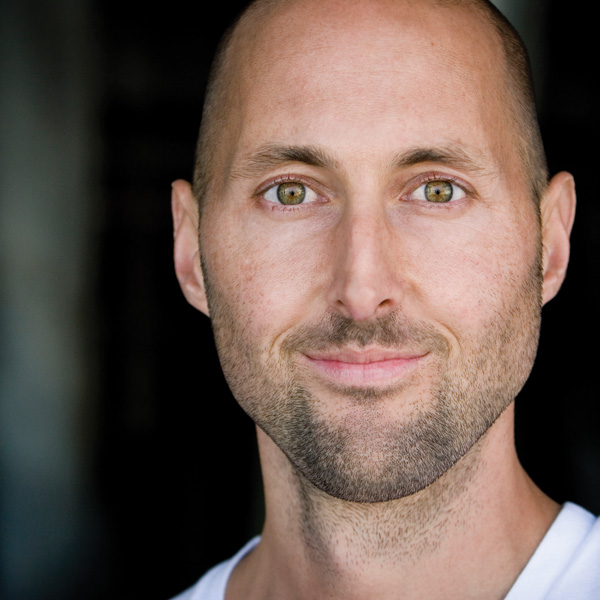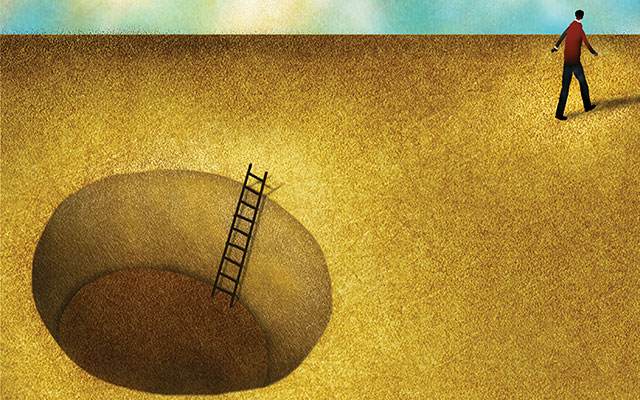Sir Ken Robinson believes that we are all born with tremendous natural capacities and innate passions, but that we lose touch with them as we grow older. Well-meaning social and cultural forces (families, friends, parents, the education system) blur our ability to see our true passions. “The result,” writes Robinson in his book The Element: How Finding Your Passion Changes Everything, “is that too many people never connect with their true talents and therefore don’t know what they’re really capable of achieving.”
Reconnecting with “the Element,” which is the term Robinson uses to describe the things we are good at doing and also love to do, will enrich and fulfill our lives. But the benefits extend beyond personal satisfaction. When more people connect with the Element, says Robinson, it creates happier families, neighborhoods, communities, schools and workplaces. In short, it enriches the world.
Redefining Intelligence
When we think about intelligence, we tend to focus on IQ, often falling prey to the belief that brainpower in certain areas, like math and reading comprehension, are the only talents that really matter. So we fixate on questions like, “How intelligent am I?” “Is my IQ higher than the neighbor’s?” “What is my child’s IQ?”
Robinson believes that this type of narrow focus leads us away from discovering our genuine talents. Instead of asking, “How intelligent am I?” Robinson believes we should be asking, “How am I intelligent?”
“The difference in these questions is profound. The first suggests that there’s a finite way of gauging intelligence and that one can reduce the value of each individual’s intelligence to a figure or quotient of some sort,” writes Robinson. “The latter suggests a truth that we somehow don’t acknowledge as much as we should — that there are a variety of ways to express intelligence, and that no one scale could ever measure this.”
Some psychologists still argue that there’s no proof of these other intelligences. On the contrary, says Robinson, “the clear fact of everyday experience is that human intelligence is diverse and multifaceted. For evidence, we need only look at the extraordinary richness and complexity of human culture and achievement. . . . Were mathematical and verbal intelligence the only kinds that existed, ballet never would have been created. [We’d also miss out on] abstract painting, hip-hop, design and architecture.”
So ask yourself, “How am I smart?” The answer will lead you toward discovering the Element in your own life.
Finding Your Passion
If you have trouble answering the How am I smart? question, you’re not alone. Many of us have been so disconnected from our genuine interests and talents for so long that we struggle to identify them.
Robinson tells the story of musicians Paul McCartney and George Harrison. As primary school students, both enrolled in the same music class — and both were told by the teacher that they had no musical talent. “So this one teacher had half the Beatles in his class and he missed it. [The point],” says Robinson, “is that talent is often buried deep and unless you look for it, and you give it the encouragement and conditions to flourish,” it could go unrealized or undiscovered.
One classic technique for discovering your passion is to ask yourself this: “If left to my own devices — if I didn’t have to worry about making a living or what others thought of me — what am I most drawn to doing?” writes Robinson.
If the question still doesn’t resonate with you, try phrasing it this way: “What do I enjoy doing so much that I would pay for the opportunity to do it?”
If nothing still comes to mind, just keep asking the question until you get an answer. “Perhaps the most important attitude for cultivating good fortune is a strong sense of perseverance,” writes Robinson. You will eventually land on something that sparks your interest.
When you do begin to discover and embrace your passions and talents, you will immediately feel a positive shift in your life. “Activities we don’t like drain us in minutes, even if we approach them at our physical peak of fitness,” writes Robinson. On the contrary, he continues, “activities we love fill us with energy even when we are physically exhausted.”
When people engage in passionate pursuits, he notes, they “tap into a primal source of energy. They are literally alive because of it.”
Overcoming Constraints
When you begin to follow your heart, you may face challenges. You might encounter resistance from friends, family, your current situation, even yourself. “In my experience, most people have to face internal obstacles of self-doubt and fear as much as any external obstacles of circumstances and opportunity,” notes Robinson.
It can also be easy to slip back into old habits (especially if you have a long history of not prioritizing your interests) or to passively conform to the habits of the people around you.
If everyone in your circle of friends continues to pursue unrewarding careers and hobbies, Robinson points out, your natural tendency will be to follow the crowd.
“The Element is about discovering yourself, and you can’t do this if you’re trapped in a compulsion to conform,” he writes. “You can’t be yourself in a swarm.”
Simply being aware of these challenges can help you prepare for them. So can gravitating toward people who have discovered their own passions and talents. They are more likely to support and encourage you in your journey.
Ultimately, connecting with your own Element requires knowing and trusting yourself. You are the one and only authority on your passions. You are the only one who can set about making your dreams a reality.
Download the PDF summary of The Element: How Finding Your Passion Changes Everything.
Watch Sir Ken Robinson’s TED Talk on Creativity
Big Ideas
Discover more practical wisdom from thought leaders by exploring our Big Ideas department.





This Post Has 0 Comments